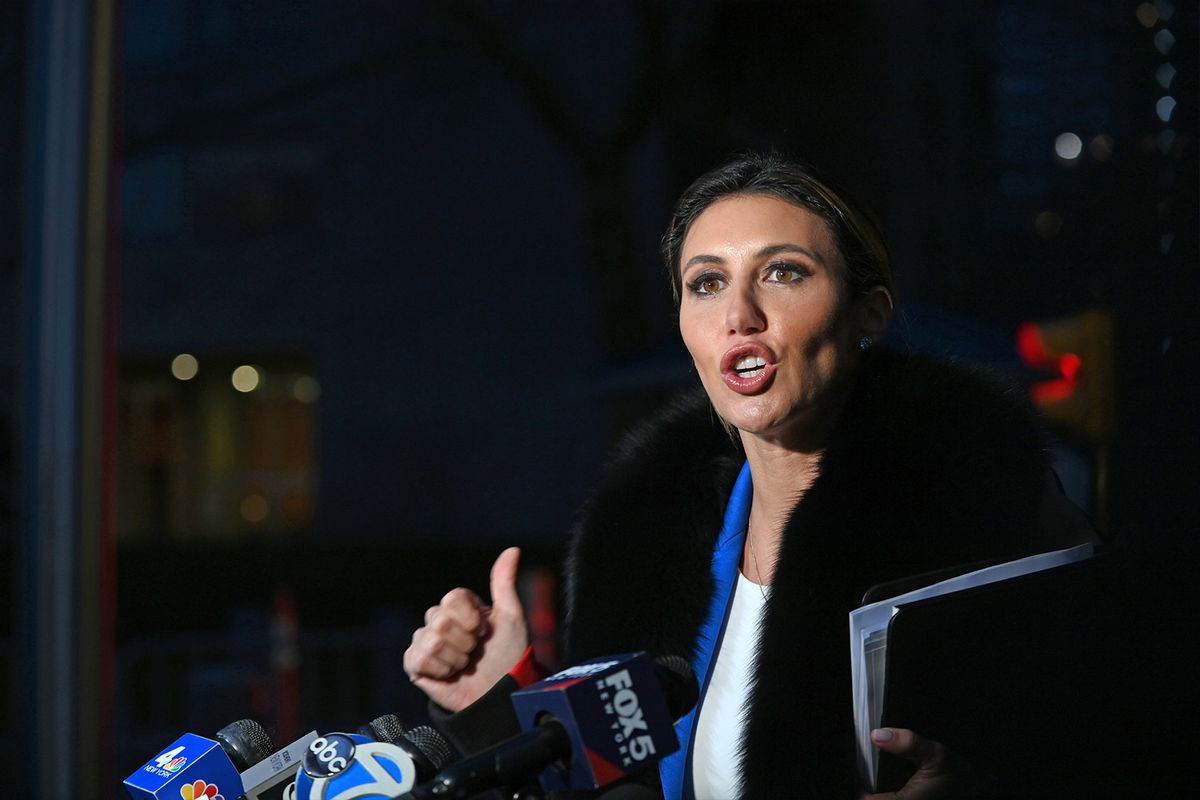Former Trump Organization CFO Allen Weisselberg on Monday pleaded guilty to perjury, admitting to lying under oath to the New York attorney general’s office as it was investigating Donald Trump.
The repercussions of Weisselberg's plea agreement could have serious consequences for Trump's attorneys, including Alina Habba, Clifford Robert, and others, The Daily Beast reported.
Judge Arthur Engoron considered Weisselberg an unreliable witness and questioned his ability to recall his position as the Trump Organization’s finance chief throughout the former president's civil fraud trial, in which Trump is accused of inflating valuations on financial statements for personal gain.
After the New York Times published a report detailing that Weisselberg had been involved in secret negotiations with prosecutors from the Manhattan District Attorney’s office, Engoron demanded that Trump’s lawyers provide answers. He asked that they submit letters “detailing to me anything you know about this that would not violate any of your professional ethics or obligations.”
“I do not want to ignore anything in a case of this magnitude,” Engoron said.
Under the New York Rules of Professional Conduct, a lawyer “shall not knowingly: ... offer or use evidence that the lawyer knows to be false.” If a lawyer becomes aware that their client or a witness called by the lawyer presents "material evidence" that is false, the lawyer is obligated to “take reasonable remedial measures, including, if necessary, disclosure to the tribunal.”
The rules go on to mention that a lawyer “who represents a client before a tribunal and who knows that a person intends to engage, is engaging or has engaged in criminal or fraudulent conduct related to the proceeding shall take reasonable remedial measures.”
In this case, if the Trump lawyers in the attorney general's case knew that Weisselberg lied in his testimony, they were required to take "reasonable remedial measures," Stephen Gillers, a professor of legal ethics at New York University School of Law, told Salon.
“They had to do this even if those measures required them to disclose a client's confidential information,” Gillers said. “Here those remedial measures would have required disclosure of the lie to the court. Perjury is ‘criminal’ and ‘fraudulent conduct’ under paragraph (b) [of the New York Rules of Professional Conduct].”
The disciplinary committee can start an investigation into the lawyer's conduct on its own or in response to a complaint, he added.
We need your help to stay independent
However, the key words are "knowingly use," pointed out Gregory Germain, a Syracuse University law professor. If the lawyers did not know that the testimony was false, even if they had doubts about the credibility of the evidence, they would not be in violation of the rules. If they had actual knowledge that the testimony was false, the lawyers would be subject to discipline for violating the rules, and the penalties could include “suspension or disbarment.”
“If the lawyers knew about and encouraged false testimony, the lawyers could face criminal prosecution under federal law (18 USC 1622), and similar NY criminal laws," Germain said. “But again, a prosecutor would have to prove that the lawyers had actual knowledge that the testimony was false beforehand. That's a difficult thing to prove without the assistance of the perjurer.”
Weisselberg, who was a key figure in both of Trump’s New York cases, and has been closely linked to Trump’s finances for decades, abruptly concluded his testimony in October, after a Forbes report suggested that he had lied under oath about his involvement in valuing Trump’s penthouse apartment.
Weisselberg claimed to have minimal knowledge of how Trump’s penthouse at Trump Tower came to be valued at $200 million on his financial statements, based on figures indicating it was three times its actual size.
The issue concerns the “false size” of Trump's apartment that was used to determine the value of the apartment in Trump's financial statement, Germain explained. Weisselberg has admitted to lying under oath when he claimed that he did not know of the error until after the statement was used.
Want a daily wrap-up of all the news and commentary Salon has to offer? Subscribe to our morning newsletter, Crash Course.
“In admitting to perjury, he now admits that he knew and did not correct earlier than he claimed in his testimony under oath,” Germain said. “However, he has apparently not implicated others in the Trump organization in the fraud or perjury.”
Since Engoron already determined the falsity of the valuation and knew the truth when he issued his opinion, the perjury admission would not impact the civil case unless, of course, Weisselberg were to implicate others, he added.
"As attorneys, you have a duty to the court, your clients and to yourself to vet your case well before you step foot in court…” V. James DeSimone, a California civil rights attorney, told Salon. “You protect the truth, that’s due diligence.”
Even with rigorous vetting people can lie and clients and witnesses can mislead, DeSimone explained. Regardless of lawyers doing their due diligence, if false testimony comes into evidence without a lawyer’s knowledge, that lawyer should be protected from adverse consequences.
"In this case, Trump’s attorneys had evidence of contradictions between Weisselberg’s emails and what he claimed under oath,” DeSimone said. “Under the rules of professional conduct, they had an obligation to the court and to the justice system to persuade Weisselberg not to testify falsely and, if unsuccessful, must refuse to offer the false testimony."
Read more
about Allen Weisselberg



Shares